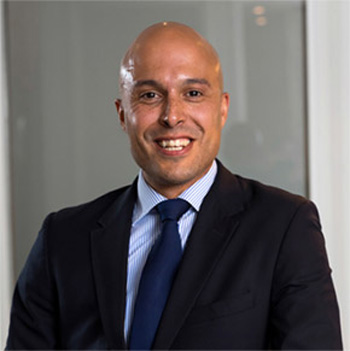Recent appointments of South Africa’s seasoned and well-known CEOs in South Africa raises questions as to what factors are possibly influencing board decision making and whether internal processes such as succession planning are working effectively, according to Leon Ayo, chief executive officer of Odgers Berndtson Sub-Saharan Africa.
“While these individuals undoubtedly hold proven track records, the appointments of CEOs from a narrow talent pool does provoke questions regarding the broader executive talent pipeline,” says Ayo.
“During economic uncertainty, boards often look for a safe pair of hands, such as the CFO, to take on the CEO role, especially when a business is not performing as well as expected and shareholders are pressuring for good returns. Boards also turn to executives who have weathered many storms and are able to navigate a company through tough times.”
While external economic factors can influence the appointment of CEOs, boards must consider seeing beyond the short-term challenges and ensure effective succession planning is still being implemented to allow for new talent development.
Succession planning encourages all strands of diversity within a company’s leadership, whether they be traditional equity strands or relevant sector or market experience strands. Diversity is a critical success factor for all companies.
In the context of transformation in South Africa, Business Unity South Africa acknowledges how little transformation has progressed at top and senior management levels and hopes to address this in its ‘Business Approach to Economic Transformation’ document released at the end of June.
“Encouragingly however, the next tier of talent in South Africa is rich in diversity and very well transformed,” says Ayo. “Therefore the talent pipeline for new, diverse and representative leadership exists and effective succession planning will ensure this level of talent is nurtured and ready to enter an executive role.”
Factors influencing the succession planning process can result from firms being inclined to default to what they know, and in even worse cases, who they know, risking the business by not following due diligence in making the right appointment.
“Even if the board uses its own network to find someone, benchmarking them against a talent pool of both local and global executives to find the best in class in the market will de-risk appointments, and ensure that organisations can find the best person to lead them,” advises Ayo. “Firms must consider enlisting independent third party experts to manage and enrich the process – just as they would entrust audit and legal firms –the price of failure not to follow best practice remains high.”
As to how firms can enforce a culture of succession planning, Ayo believes boards should take deliberate measures and not leave succession planning to chance:
Implement a robust succession plan. The market and shareholders can feel jittery when a change in leadership occurs especially if there is no clear indication of who is in line to succeed. A robust succession plan starts at the board level, involving not only CEO succession but also that of other top executives in these organisations.
Invest in people without fear of losing them. At times, individuals trained and earmarked for senior roles may be headhunted by other firms, however, the benefits far outweigh the risk. Mentoring individuals for senior roles, whether they remain with the firm or not, benefits South Africa’s corporate talent pool overall. The key is to ensure a number of effective leaders have been groomed for senior positions.
Incentivise CEOs to plan successions. CEOs don’t always focus on succession planning because they are not incentivised to do so. Making succession planning part of the CEOs KPIs linked to incentives will ensure this area of the business is not neglected. CEOs must work with the Nominations Committee to get this right.
“It may seem counter-intuitive but CEOs should take the lead in making sure they are replaceable from within – by mentoring and preparing the next level of leadership who can take over once they move out of their role,” says Ayo.
Even as firms navigate current economic challenges they must not allow succession planning to be neglected.
About Odgers Berndtson Sub-Saharan Africa
Odgers Berndtson Sub-Saharan Africa is a global executive search firm operating across the African continent. Based in South Africa since 2004, Odgers Berndtson is one of the top three local search firms. We are human capital experts, who secure the right talent at Executive and Board level for all industry sectors and functions.
To learn more about Odgers Berndtson Sub-Saharan Africa, please visit the company’s website at www.odgersberndtson.co.za or follow us on Twitter https://twitter.com/OdgersBerndtSA
(@OdgersBerndtSA).





















































































